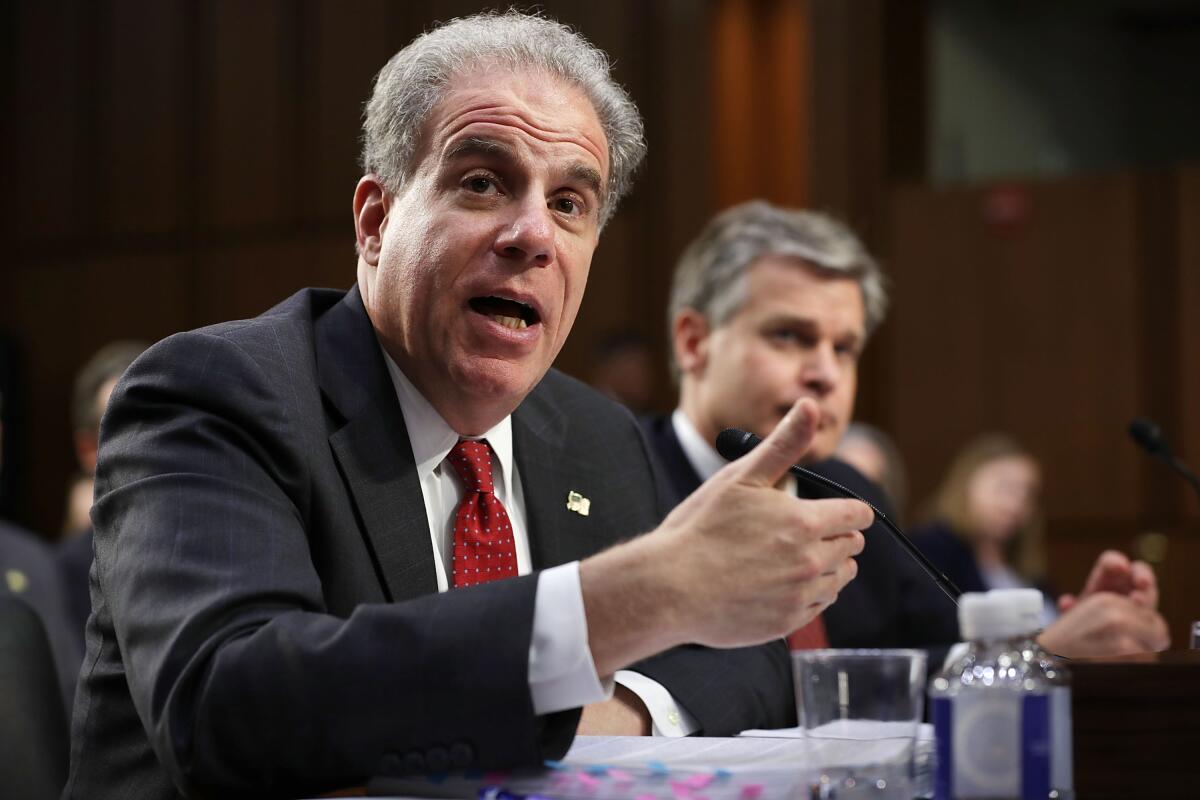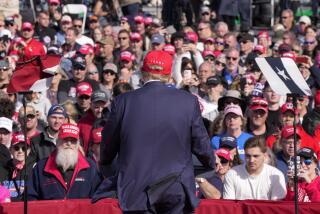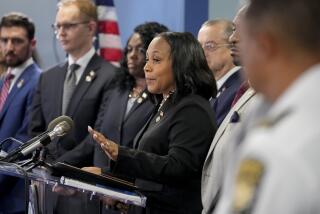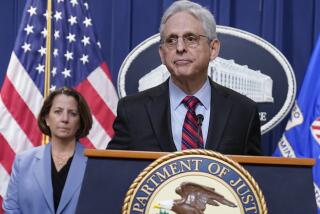Editorial: One of Trump’s favorite Obama conspiracy theories was just thoroughly debunked

President Trump has long portrayed himself as the victim of a nefarious “deep state,” casting special counsel Robert S. Mueller III’s investigation into possible ties between Russia and Trump’s 2016 campaign as a partisan witch hunt carried out by biased investigators on false pretenses. On Monday, however, a long awaited report by the Justice Department’s inspector general flatly refuted that argument.
Not that Inspector General Michael Horowitz lauded the FBI’s handling of the counterintelligence investigation that became the basis for Mueller’s work — to the contrary, he offered pointed criticism of the agency that should spur some necessary reforms. But Horowitz’s report on the origin and evolution of the FBI investigation dismantles the conspiracy theory cherished by the president, a narrative of intelligence community malice that reached the heights of absurdity with his claim that former President Obama “had my ‘wires tapped’ in Trump Tower just before the victory.”
Trump and his allies focused on Horowitz’s criticisms and ignored his conclusions about the validity of the investigation. But the public should not be misled.
Horowitz wrote that his investigators “did not find documentary evidence that political bias or improper motivation” influenced decisions to investigate people with connection to the Trump campaign. He said that the official who opened the Russia investigation, Bill Priestap, the chief of the FBI’s counterintelligence division, was acting “in compliance with department and FBI policies.”
Horowitz also scotched another conspiracy theory — that the FBI planted informants in the Trump campaign. Trump, of course, has made that claim, and he tweeted last year that “SPYGATE could be one of the biggest political scandals in history!”
At the same time, Horowitz was highly critical of the way the FBI carried out the investigation, particularly when it came to the electronic surveillance of former Trump campaign advisor Carter Page. Horowitz concluded that the bureau failed to provide accurate and complete information to Justice Department lawyers and made 17 “significant errors and omissions” in applications to the Foreign Intelligence Surveillance Court for permission to eavesdrop on Page.
Horowitz also faulted the FBI for not being forthcoming with the court about the now-famous Steele dossier, a collection of intelligence supplied by a former British intelligence operative whose research was funded by Democrats. The Steele dossier has become an obsession with congressional Republicans and other Trump supporters, some of whom suggest that the Russia investigation began with this “opposition research.”
Horowitz definitively refuted that talking point, noting that the Steele information “played no role” in the opening of the Russia investigation code-named Crossfire Hurricane. But he criticized the FBI for seeking renewals of court orders to eavesdrop on Page without disclosing additional information that raised significant questions about the reliability of Steele’s information. The picture the report painted is not one of a partisan plot but rather of carelessness and failures of judgment.
Horowitz recommended that the FBI and the Justice Department adopt procedures to ensure that applications for an order to conduct electronic surveillance are based on “all relevant and accurate information.” That almost goes without saying, and it’s unfortunate that the FBI needs to be chastised about it.
Predictably, Trump mischaracterized the Horowitz report, saying that it revealed “an overthrow of government.” And Atty. Gen. William Barr, who famously told a congressional committee that he believed spying on the Trump campaign “did occur,” quibbled with Horowitz even as he lauded his investigation as a credit to the Justice Department.
“The inspector general’s report now makes clear that the FBI launched an intrusive investigation of a U.S. presidential campaign on the thinnest of suspicions that, in my view, were insufficient to justify the steps taken,” Barr said — as if his opinion is as valuable as that of the man who’s spent months investigating the issue. A more guarded statement of disagreement came from John Durham, the career prosecutor who is conducting a criminal investigation of the origins of the Russia investigation. Durham said that he had told Horowitz that “we do not agree with some of the report’s conclusions as to predication and how the FBI case was opened.”
Even if one disputes Horowitz about the propriety of opening the Russia investigation, he has debunked the idea that it was a partisan effort to hurt the Trump campaign. In fact, it was Hillary Clinton whose candidacy was damaged by the FBI, which reopened an investigation late in the campaign into her use of a private email server. Alas, that won’t stop the president and his supporters from ranting about a partisan plot to keep him out of the White House.
More to Read
A cure for the common opinion
Get thought-provoking perspectives with our weekly newsletter.
You may occasionally receive promotional content from the Los Angeles Times.






